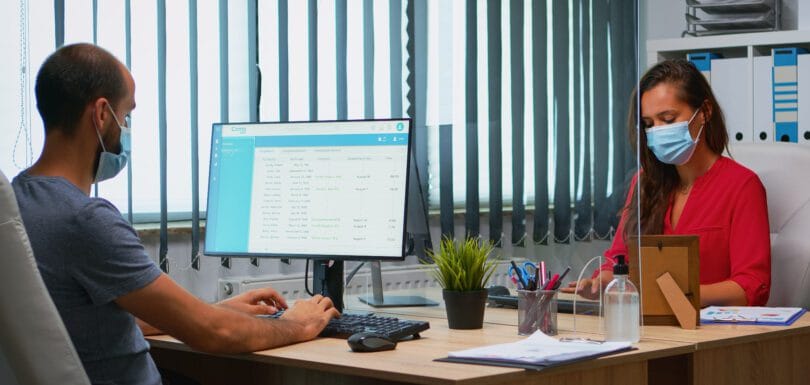How Remote Teams for Medical Practice Deliver Amazing Workflow
How Remote Teams Improve the Flow of a Medical Practice In today’s healthcare environment, medical offices are constantly looking for ways to work smarter, not harder. One solution that has gained attention is the use of remote teams for medical practice. These teams help with administrative and support tasks that often take up a lot of on-site staff time. By leveraging remote professionals, clinics can run more efficiently and provide better patient care. Many practices adopt remote teams because they reduce errors, save time, and allow in-office staff to focus on what matters most treating patients. Tasks like appointment scheduling, billing follow-ups, and patient communication can all be managed virtually by trained staff. This helps doctors, nurses, and office managers focus on clinical duties instead of paperwork. Moreover, remote teams bring flexibility to medical offices. They can quickly adjust to sudden patient surges, coordinate telehealth visits, and keep medical records accurate and organized. Patients notice smoother experiences and faster responses, while staff feel less stressed. This combination of efficiency and improved patient care is why more medical practices are turning to remote teams every day. Understanding Remote Teams in Medical Practices Remote teams in healthcare consist of professionals who work virtually to handle a variety of administrative, clinical, and operational tasks. Instead of being physically present in the office, these teams manage responsibilities such as scheduling, patient follow ups, billing, and records management from a remote location. This approach allows clinics to maintain smooth operations even when in-office resources are limited. Practices often outsource roles to specialized staff like virtual medical assistants, virtual medical administrative assistants, and other healthcare support professionals. These remote team members are trained to handle tasks accurately, ensuring that patient information is reliable and communication is consistent. Additionally, virtual assistant services for medical practice help coordinate with on-site staff seamlessly, bridging gaps and reducing workflow delays. Remote teams also improve collaboration between departments. For example, a healthcare virtual assistant can coordinate between billing, patient care, and telehealth services to ensure every step in the patient journey is tracked and documented. This not only enhances office efficiency but also creates a more organized and less stressful environment for in-office staff. Common tasks managed by remote teams include: Appointment scheduling and reminders Insurance verification and prior authorization Data entry and electronic health record management Patient communication and telehealth coordination By taking over these responsibilities, remote teams allow medical offices to focus more on patient care rather than administrative bottlenecks. How Remote Teams Improve the Flow of a Medical Practice The workflow in traditional medical offices can often face bottlenecks. Tasks like scheduling, billing, and record keeping may pile up, causing delays for both staff and patients. This is where remote teams for medical practice become invaluable. They manage administrative responsibilities, ensuring that operations flow smoothly and efficiently. Remote teams streamline patient scheduling by managing appointment calendars, sending reminders, and coordinating follow-ups. This reduces missed appointments and keeps the office running on time. Similarly, tasks like medical records and billing are handled accurately by professionals such as medical virtual assistant services and virtual medical office assistants, reducing errors and keeping documentation updated. Patient communication is another area where remote teams make a difference. A virtual assistant for healthcare can respond promptly to patient questions, coordinate telehealth sessions, and ensure messages reach the correct staff member. This saves time, increases satisfaction, and makes patients feel valued. Furthermore, by taking on repetitive and administrative duties, remote teams free in-office staff to focus on direct patient care. Physicians, nurses, and other clinicians can spend more time on medical tasks rather than paperwork. As a result, integrating remote teams into a medical practice creates a workflow that is faster, more organized, and more patient friendly overall. Key Roles of Remote Medical Staff in Daily Operations Remote medical staff play various roles that support the daily operations of a medical practice. Each role contributes to efficiency, accuracy, and improved patient experience. First, virtual medical assistants handle routine administrative tasks like appointment scheduling, patient reminders, and document preparation. They act as a bridge between patients and healthcare providers, ensuring communication is smooth and timely. Similarly, physician virtual assistants assist doctors with clinical tasks such as updating electronic records, tracking patient progress, and preparing reports. Telehealth support staff coordinate virtual appointments, help patients connect to online sessions, and manage follow-ups. Meanwhile, medical billing and coding experts handle insurance verification, claim submissions, and payment tracking. This ensures that the financial side of the practice runs without delays or errors. Front desk support and patient communication teams also play a crucial role. By answering calls, responding to emails, and managing patient queries, they reduce the workload of on-site staff and ensure that every patient feels supported. Appointment management and reminders Billing, coding, and insurance verification Telehealth coordination and follow-ups Patient communication and documentation Together, these remote roles improve operational efficiency, reduce errors, and allow in-office staff to focus on direct patient care, ultimately making the entire practice run more smoothly. Enhancing Patient Experience Through Remote Teams Patient experience is directly linked to how well a medical practice functions. Remote teams improve the patient journey by ensuring communication is clear, timely, and consistent. For example, virtual assistant for medical practice professionals send appointment reminders, follow up on test results, and coordinate telehealth sessions. This makes patients feel attended to, reducing frustration and confusion. In addition, virtual medical assistant companies often provide services that answer patient queries quickly and efficiently, giving patients confidence that their concerns are being addressed. Remote teams also help maintain accurate patient records, ensuring that every provider has the most up to date information. This prevents errors and supports better clinical decisions. Furthermore, remote support allows clinics to respond faster to inquiries, schedule appointments promptly, and manage high patient volumes without sacrificing quality. According to the American Medical Association, integrating virtual care teams into daily workflows not only streamlines communication but also ensures every team member can contribute to patient care more effectively. The correlation











